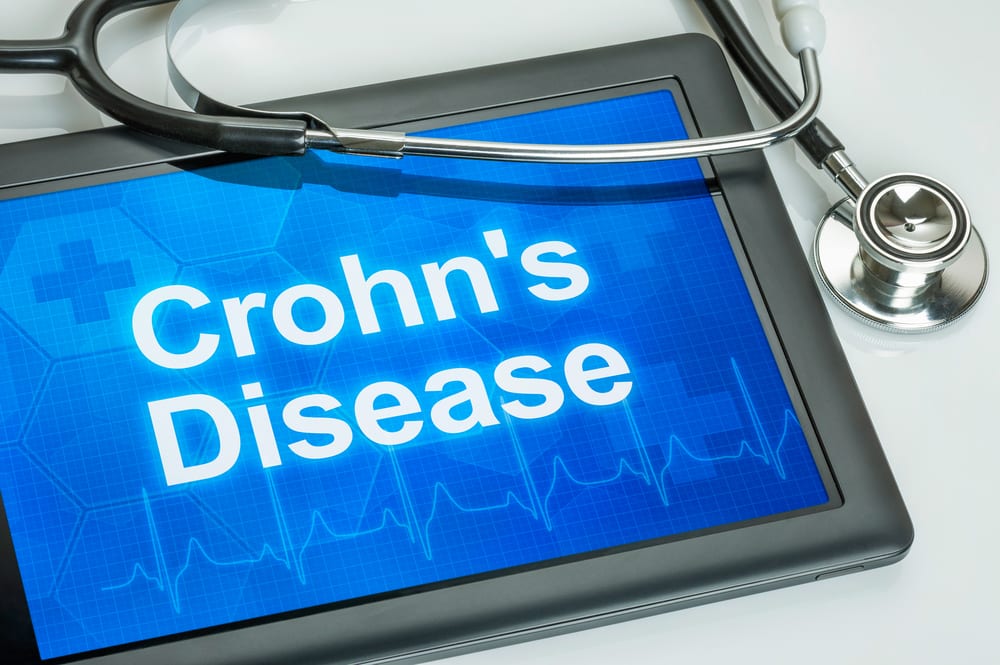Although it’s not common, the U.S. Centers for Disease Control & Prevention (CDC) estimates that approximately 3 million Americans are currently living with some form of inflammatory bowel disease (IBD).
Different types of IBD affect different areas of the digestive system, and the body, in general. Because the symptoms of Crohn’s disease can mimic signs of other digestive conditions, it is important to see a gastroenterology specialist and have the appropriate tests to make an accurate diagnosis.
Causes & Risk Factors of Crohn’s Disease
Crohn’s is a type of chronic inflammatory bowel disease (IBD) that causes inflammation in the gastrointestinal (GI) tract. This condition can affect any portion of the GI tract, ranging from the esophagus to the colon. Most commonly, however, it affects the small intestine, or the ileum.
The exact cause of Crohn’s is not yet known. Medical research has identified multiple factors that may increase your chances of developing this condition, the most significant of which is having a blood relative with Crohn’s. Auto-immune conditions and your environment are suspected to be additional factors in the development of Crohn’s.
As far as medical science can determine, Crohn’s does not develop due to diet or stress, although these factors can exacerbate symptoms. Smoking, taking NSAID medications (ibuprofen, aspirin), birth control pills and antibiotics do correlate with a higher incidence of this condition, although no direct evidence indicates any of these factors as a cause of Crohn’s disease.
Crohn’s Disease Symptoms
Symptoms of this disease include:
- Diarrhea
- Abdominal pain & cramping
- Unexplained weight loss
- Nausea
- Loss of appetite
- Fever
- Joint pain
- Fatigue
- Mouth sores
Depending on the severity of the condition, patients may experience redness and pain in their eyes and develop tender, red bumps on their skin. In advanced cases, patients may experience blood in the stool and develop anemia and inflammation in other organs, such as the liver.
The symptoms of Crohn’s resemble those of other GI diseases including ulcerative colitis (another form of IBD), celiac disease and severe cases of irritable bowel syndrome (IBS). This fact makes it virtually impossible to self-diagnose. Consulting a gastroenterologist is the only way to determine whether you do suffer from Crohn’s or another digestive condition.
How Is Crohn’s Disease Treated?
Currently, there is no known cure for Crohn’s disease, but experienced GI specialists successfully treat Crohn’s disease using a variety of methods. This disease is unique to the individual affected by it, so not every treatment works for every patient. For some, managing Crohn’s, or any form of IBD, may require a combination of treatment protocols.
Anti-inflammatory drugs are the first line of defense in treating Crohn’s. Doctors may also prescribe antibiotics, immune suppressant drugs, anti-diarrheal medication, pain relievers and nutritional supplements.
If these therapies are unable to keep the condition under control and avoid damage to the intestines, Crohn’s patients may require surgery as the most effective treatment for their condition.
At Granite Peaks Gastroenterology, we understand how challenging it can be to deal with inflammatory bowel disease. We focus on helping patients through personalized care that includes accurate diagnosis and personalized treatment. With two convenient Utah locations – in Lehi and Sandy – we invite you to contact us for a consultation. Our board-certified gastroenterologists can help you reclaim your life through personalized treatment and management of Crohn’s disease.


